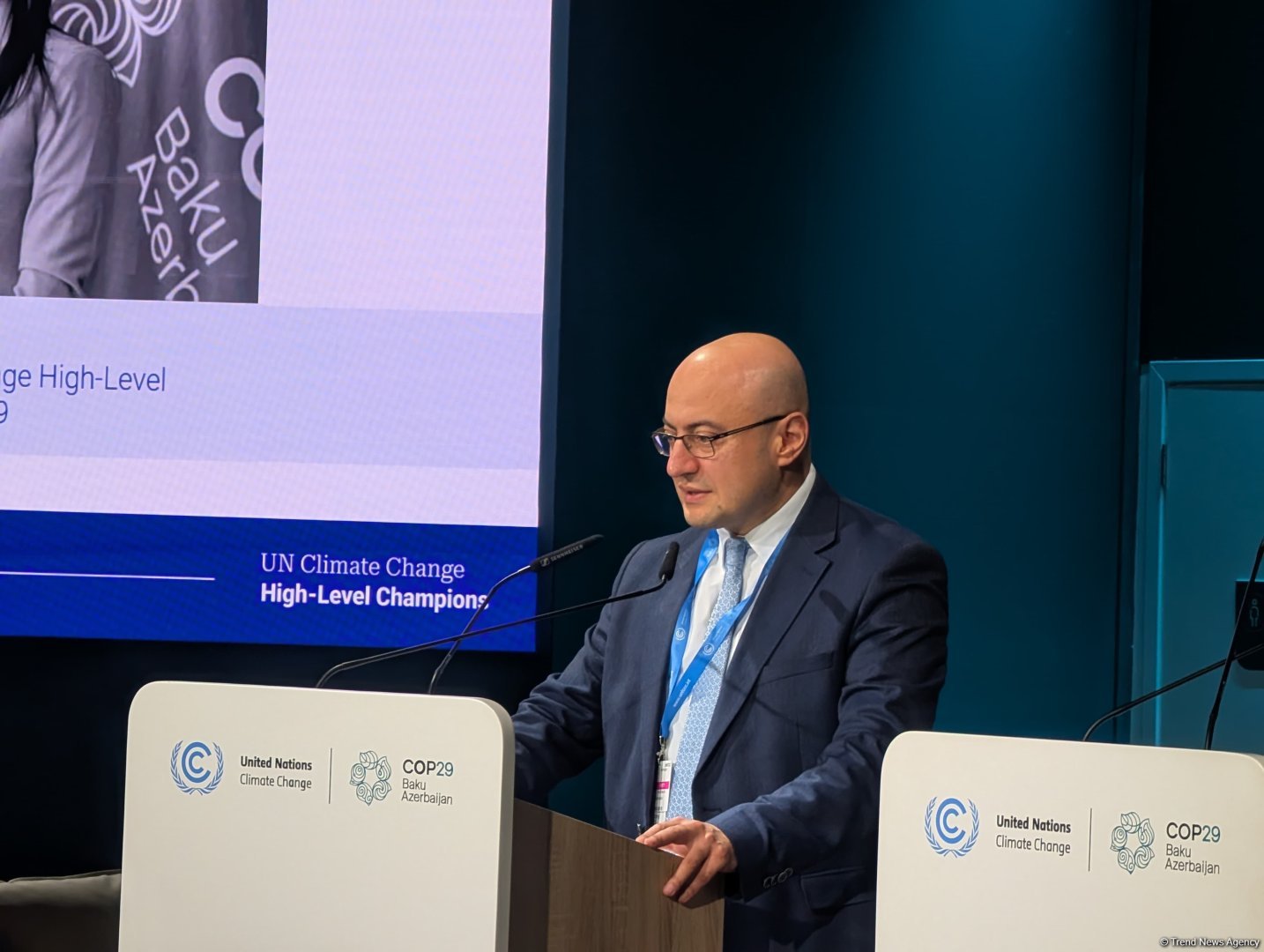BAKU, Azerbaijan, November 18. The Baku principles for human development to ensure climate resilience were endorsed and approved at COP29 today, senior negotiator and co-leader of the COP29 Presidency Action Agenda initiative group Elmar Mammadov said at a panel session themed "Is investing in skills the climate commitment that counts?", Trend reports.
"Today, we launched two key initiatives that will serve as the foundation for activities within the framework of Human Capital Development Day. These initiatives are supported by UNESCO, WHO, ILO, and other UN agencies, as well as three multilateral development banks: the Asian Development Bank and the Islamic Development Bank, and three funds - the Global Fund, the Green Climate Fund, and the Adaptation Fund.
We have also adopted a joint statement on the Baku Initiative for Human Capital Development to strengthen climate resilience," emphasized Mammadov.
According to him, in the process of developing the initiatives and action plan, the team conducted comprehensive consultations.
"We aimed to make this process as inclusive and transparent as possible. As part of these consultations, we interacted not only with the participants but also with other stakeholders, including representatives of civil society, think tanks, multilateral development banks, international organizations, and other key actors," he added.
To note, the 29th session of the Conference of the Parties to the UN Framework Convention on Climate Change (COP29), which will run until November 22, opened at the Baku Olympic Stadium on November 11. It is the largest event organized by Azerbaijan to date, and the first time in the region that it is being held in Azerbaijan.
Within COP29, the highest level event - the summit of world leaders on climate action - was held on November 12–13.
The main expectation from COP29 is to agree on a fair and ambitious New Collective Quantitative Goal (NCQG) on climate finance. The COP29 chairmanship has launched 14 initiatives that include linkages between climate action and the Sustainable Development Goals, including green energy corridors, green energy storage, harmony for climate resilience, clean hydrogen, methane reduction in organic waste, action on green digital technologies, and other topics.
In addition to being a top priority that creates the conditions for action, creating climate finance will also help fulfill the 1.5°C pledge by bringing everyone together.
The UN Framework Convention on Climate Change is an agreement signed at the Rio Earth Summit in June 1992 to prevent dangerous human interference in the climate system. The acronym COP (Conference of Parties) stands for “Conference of Parties” and is the highest legislative body overseeing the implementation of the Framework Convention on Climate Change.
A total of 198 countries are parties to the Convention. Unless otherwise decided by the parties, COP is held annually. The first COP event was held in March 1995 in Berlin, and its secretariat is located in Bonn.
Stay up-to-date with more news on Trend News Agency's WhatsApp channel







